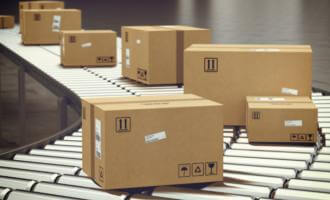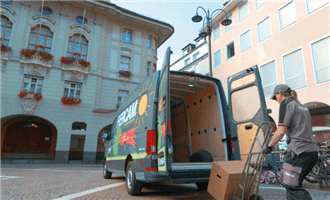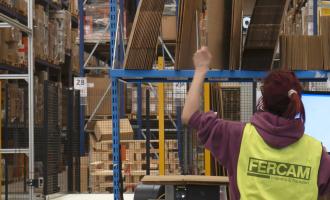
8 March 2021 - by: Camilla Bernardoni
Gender equality in logistics, are we still far from the finish line?
Transportation and logistics: is it still a man's job? Statistics show that although it is perceived that way by some, the sector is slowly seeing the gender gap close. In order to continue to pursue the path of equity, it is necessary to intervene at a cultural level, building a new, more truthful image of our profession

A woman working in the logistics and transport sector unfortunately represents to date a rare specimen, albeit less unusual than in the past. The presence of women in the sector is still limited, with an average of around 22% in the EU in 2018 [source: Eurostat]: a percentage that is still too far from actually closing the employment gender gap. However, the trend appears to be progressively increasing, also thanks to companies that are contributing to the construction of a new image for our professional sector, holding high the flag of values such as inclusivity and gender equality.
Women are less present in the logistics sector because from the outset they appear to be discouraged from undertaking such a study course or applying for a job in a sector that in the common imagination is associated with physical strength, heavy vehicles and loads to handle. And as for those who are already employed, some are struggling to establish themselves and grow, not because they are less talented than their colleagues, but because of stereotypes that portray the male mindset as more suited to leadership roles in the industry. Another issue, this time shared across different work areas, is the difficulty in finding a balance between work and private life due to the sometimes very demanding work schedule.
There are many other operational components typical of the profession, which are just as crucial, such as planning and organizing travel and transport, customer service, customs management, promotional activities and sales... Tasks that require, in addition to purely technical skills, many other qualities: listening and organizational skills, empathy and communication, patience and stress management, or knowledge of languages, to name but a few. Qualities that are simply impossible to ascribe to one gender rather than another.
The latest "Great Place to Work" satisfaction survey, which involved the distribution of a questionnaire to all employees in Italy in September 2020, reports a very significant finding in this regard: 72% of respondents stated that at FERCAM people are treated impartially, regardless of gender. In fact, each individual is considered, evaluated and rewarded solely on the basis of his or their work performance.
In FERCAM, women are well represented, especially in the departments of Recruiting and Career Development, Training, Quality and Environment, Administration, or Accounting. And there are particular professional niches, such as our Fine Art Business Unit, where the prevalence of female staff has been a constant for several years. In terms of recruitment, the response from outside is also very good: there are more and more women applying, even for more operational or technical roles.
FERCAM Austria is an excellent example of this: with a female employment rate of 53.7%, there are more women than men! It is worth noting here that a particularly high number of women are also to be found at a managerial level in the departments of Accounting, Finance, Sales, Administration, Training and Human Resources. Our branch in Brunn am Gebirge stands out in particular: here the proportion of women in management positions is 83%!
Why is the rate of women being employed still so low in the logistics industry?
From childhood, we grow up associating certain professional roles, activities, and even school subjects with one gender rather than another. This happens for cultural and historical reasons, which influence our individual perception of "normalcy". Think of science, manufacturing, industry: these are fields that we still more easily associate with male figures, unconsciously. In the same way, we usually think of the female figure as more akin to humanistic subjects rather than scientific or technical ones.Women are less present in the logistics sector because from the outset they appear to be discouraged from undertaking such a study course or applying for a job in a sector that in the common imagination is associated with physical strength, heavy vehicles and loads to handle. And as for those who are already employed, some are struggling to establish themselves and grow, not because they are less talented than their colleagues, but because of stereotypes that portray the male mindset as more suited to leadership roles in the industry. Another issue, this time shared across different work areas, is the difficulty in finding a balance between work and private life due to the sometimes very demanding work schedule.
The false myth that drives out the female workforce from the transportation world
Speaking of gender equality in logistics and the widespread perception of professional opportunities in it, there is at least one myth to dispel. Many women rule out choosing a career in this sector because they are convinced that they do not have the right skills, not knowing the details of the variety of activities involved and the skills actually required. Of course, the logistics sector goes far beyond the physical handling of goods, with loading/unloading, warehousing or transport operations, from which in any case female staff have no reason to consider themselves excluded.There are many other operational components typical of the profession, which are just as crucial, such as planning and organizing travel and transport, customer service, customs management, promotional activities and sales... Tasks that require, in addition to purely technical skills, many other qualities: listening and organizational skills, empathy and communication, patience and stress management, or knowledge of languages, to name but a few. Qualities that are simply impossible to ascribe to one gender rather than another.
At FERCAM the trend reversal is fully underway
FERCAM is one of the companies in the logistics and transport sector in which the percentage of female personnel has progressively increased over the years, which has made it possible to increasingly narrow the gender gap that characterized the widespread trend in the past. Recognizing gender diversity as a source of enrichment, we are committed to ensuring fairness and inclusiveness in every context of the company.The latest "Great Place to Work" satisfaction survey, which involved the distribution of a questionnaire to all employees in Italy in September 2020, reports a very significant finding in this regard: 72% of respondents stated that at FERCAM people are treated impartially, regardless of gender. In fact, each individual is considered, evaluated and rewarded solely on the basis of his or their work performance.
In FERCAM, women are well represented, especially in the departments of Recruiting and Career Development, Training, Quality and Environment, Administration, or Accounting. And there are particular professional niches, such as our Fine Art Business Unit, where the prevalence of female staff has been a constant for several years. In terms of recruitment, the response from outside is also very good: there are more and more women applying, even for more operational or technical roles.
FERCAM Austria is an excellent example of this: with a female employment rate of 53.7%, there are more women than men! It is worth noting here that a particularly high number of women are also to be found at a managerial level in the departments of Accounting, Finance, Sales, Administration, Training and Human Resources. Our branch in Brunn am Gebirge stands out in particular: here the proportion of women in management positions is 83%!
Share


 Language
Language

























